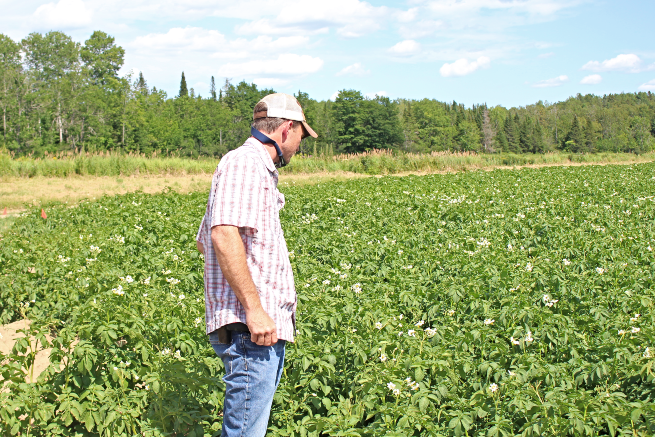
Maine Potato Board’s Porter Seed Farm experiment finds success
Most major potato-producing states have an association or commission in place to connect and represent its collection of potato growers. Rarely are such commissions actually in the business of growing potatoes.
The Maine Potato Board is an exception, however. Taking over a seed potato operation wasn’t something the board administrators wanted to do, but they and their member growers found themselves in a situation where the alternative would have caused a real hit to the state’s potato industry.
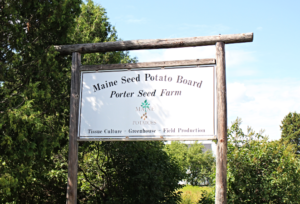
In 1947, the Maine Seed Potato Board, which now is administered by the same staff as the Maine Potato Board, worked out a deal with the state government to purchase an isolated farm near Masardis, which became known as Porter Seed Farm, for the purpose of helping to supply growers with early-generation seed potatoes. Under the agreement, the farm was run by the Maine Department of Agriculture, Conservation & Forestry, which it was for decades.
By 2008, however, the state government-run seed farm was in rough shape, and officials were ready to throw in the towel.
“There are a lot of things the government can and should do, but it became obvious that one thing it shouldn’t be doing is running an early-generation seed farm,” said Don Flannery, who has been the Maine Potato Board’s executive director since the late 1990s. “Things had kind of gone downhill as far as the facility itself and they’d lost a lot of customers.
“The government, due to budget constraints, was looking for a way to get out.”
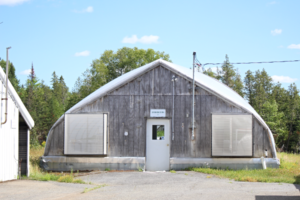
A “shotgun clause” was initiated, said Flannery, with a chuckle. “I went into the governor’s office and he said, ‘You have two choices: either the industry takes the farm over, or we close it down.’”
Getting the farm up to speed required a substantial investment in the way of improvements and staff, but the board and its member growers felt the early-generation seed operation was too important to abandon.
When the board took over in 2010, there was a limited minituber operation in the greenhouse and about 35 acres of field seed being grown. Customer relationships were in need of repairing as much as the facilities, but most of all, production had to be increased for the farm to sustain itself.
“At 34 or 35 acres, you couldn’t charge enough per acre to sustain that facility,” Flannery said.
PHOTO GALLERY: Porter Seed Farm in Masardis, Maine
The board’s plan was to give itself three years and then reassess whether to stick with it or shut down the farm. Today, Porter Seed Farm produces 400,000 minitubers and 40-plus varieties in the tissue culture lab and grows 110 acres, including 26 varieties, of field seed potatoes per year. Field potatoes include field years 1, 2 and 3.
“This is something that normally an organization like this wouldn’t undertake,” Flannery said. “When we went into this, we understood that it was going to be a big commitment on behalf of the industry and staff.
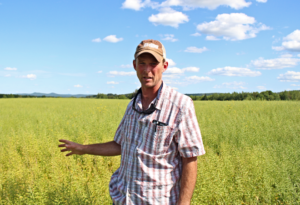
“We’ve always had a good staff here and at the farm. George McLaughlin (agricultural engineer), Jeannie Tapley (director of operations) — they have been tremendous in helping this move along and get to where we are today.” Andrew Plant is the plant pathologist and lab manager, while Jake Dyer, who joined the team in 2015, is in charge of agronomy and variety development.
The majority of minitubers are planted at the farm, which eventually becomes late-generation seed for other seed growers or sold to commercial growers. The minitubers that are sold are mostly to what Flannery describes as “the garden trade,” i.e., home gardeners and small operations, which includes mostly older varieties that aren’t as widely grown as they used to be, such as Yukon Gold, Katahdin or Kennebec.
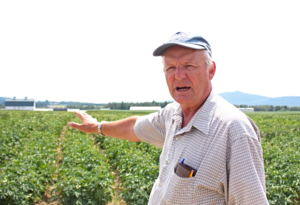
The majority of Maine seed potatoes wind up in the processing sector, so the industry standards, such as Russet Burbank, are grown at Porter Seed Farm. The operation also is proactive on getting newer varieties into production by working closely with the University of Maine’s potato breeding and variety development program, which is led by Greg Porter of the University of Maine.
“(Porter has) stuff going from the initial cross (breeding) all the way up to advanced material that may have seven years in the ground, if not longer,” Dyer said. “He’s constantly evaluating new material.
“It’s been a good relationship. There is a lot of promising material in Greg’s pipeline.”
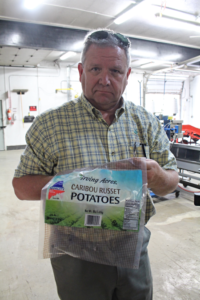
Once a variety shows five to six years of promising results, the seed farm will some clean tissue culture from Porter’s lab to begin minituber production for commercial tests. A recent success story is the Caribou russet, which became one of the 20 most-grown seed varieties in the U.S. in 2020.
Maine’s past three growing seasons have been especially dry, but the 2020 season was the driest on record. Some areas of Aroostook County, where most of the state’s potatoes are grown, received as little as 2 inches of rain between Memorial Day and harvest time in mid-September, Flannery said. Total Maine potato production was down 20% from a year ago.
Only about 25-30% of potatoes in Aroostook County are irrigated, which has state growers looking for ways to get water to mitigate such drought impact in the future.
“I think there will be a combination of investment in irrigation equipment and water sources are going to be at the forefront of most growers’ minds this year,” Dyer said. “For the past several years, growers have worked to diversify their rotations and get them out there longer to focus on green manures and trying to build soil organic matter, and I see that trend continuing.”
The board is continually looking for new varieties, but also for ways to farm more efficiently.
“For example, we just got done building a pond for irrigation water,” Flannery said. “We’re hoping to never have to turn a pump on, but we do have to manage that risk. When that early-generation seed supply isn’t what it should be, it has a tremendous impact on the industry for three or four years.”
For more with Flannery and Dyer, check out episode 7 of “The Potato Field with Spudman” podcast wherever podcasts are available.







